Early morning ablutions
Sue, Grace and I have an early start this morning with a trip to the Ganges to watch devotees perform their morning ablutions at the Dashashwamedh Ghat. Josh decided to have a few extra hours in bed and forgo the experience.
At this time in the morning it's still dark and the air is cold, and as we approach the river we are engulfed in a light mist. It is fairly quiet when we first arrive with the faithful washing themselves in the water of the holy Ganges.
But soon more tourists begin to arrive, almost outnumbering the devotees and what was a tranquil scene becomes something of a pantomime with tourists looking on whilst photographers with DSLRs and long lenses are scrambling around on the banks and in the small boats in an attempt to take pictures.
But life goes on and faithful wash themselves almost oblivious to the presence of others.
The flower seller squats down, sitting on the floor ready to sell her floral offerings. Her sari is a bright and delicate as the flowers she is selling. She yawns and I wonder how early she had to get up to prepare her flowers and travel here.
Further along the ghat another trader wearing a crisp white dhoti arrived and began to carefully unpack his wares. He sat cross legged, oblivious to the activity around him, took out a mirror and applied khol to his eyes. He was ready for the day. Before the crowds begin to swell too much we move away from the ghat.
Our guide takes us through the old city, stopping every so often to point out things that he thinks may interest us.
Not far from the ghat we stop for a few minutes to watch a young girl having her head shaved. I feel somewhat uncomfortable watching as she is clearly distressed and probably in some considerable pain. But I also feel uncomfortable, feeling that I am a voyeur, intruding on something that is private, yet how can it be when so much of life is lived out in public.
Mundan
A mundan, also known chaula or choodakarana is an important tonsuring ceremony for Hindus. Muslims also shave or trim a baby's hair and some Sikhs perform the kesi dahi ceremony by putting curd in the hair of the new-born baby boy.
The mundan is performed during the first or third year of a child's life. In some communities only baby boys are tonsured but in most families the mundan is performed on girls too. It is usually performed on a specific date and an auspicious time which is determined by a priest based on the time of birth.
In most communities a mundan or first haircut is done in the belief that it purifies the child. Many also believe that a mundan: rids the baby of his past life's negativity, bestows a long life and a good future, protects the child from the evil eye, cleanses the child's body and soul, helps to keep the baby's head cool, especially in hot summer months, helps relieve headache and pains caused by teething, and improves the growth of the baby's hair!!!
The mundan is performed on a specific date at an auspicious time. The day and time is decided by a priest based on the time of the birth. Usually a priest will shave off a part of the baby's hair whilst chanting and a barber shaves off the rest. Once shaven the head is washed with consecrated water and then a paste of turmeric and sandalwood is applied, to cool the head and heal any nicks or cuts.
Some families take their child to a holy place such as a temple for the mundan, others come to the banks of a holy river like the Ganges...
Miswak, siwak - oral hygiene
Our guide stops to buy some cleaning sticks - miswak - for his teeth and explains what they are and how they are used. We see quite a few people along the ghat, like the devotee in the photo, cleaning their teeth using a miswak.
Siwak or miswak is a natural tooth brush made from the roots or branches of various trees and bushes. The most common and beneficial comes from the root of the Salvadora Persica, a wild desert plant known in Arabic as arak, and in Urdu as peelu.
A Hadith says:
"Make a regular practice of miswak for verily it is the purification for the mouth and a means of the pleasure of the Lord."
There are a number of vendors setting up their makeshift stalls, like the miswak vendor who seems to do a brisk business and the man selling water containers whose stall seems to be rather quiet.
Continuing our walk through the bazaar most of the shops are still shut, but the residents who sleep on the raised concrete steps of the shops are waking up and moving on.
We meander through the streets, passing the occasional cow along the way. Back at the minibus we are accosted by some young girls selling packets of bindi. We buy a few packets and they go happily on their way.
Morning ritual on the Ganges
Wednesday, August 17, 2011
 Varanasi, Uttar Pradesh, India
Varanasi, Uttar Pradesh, India
Other Entries
-
1A Passage to India
Aug 089 days prior London, United Kingdomphoto_camera0videocam 0comment 0
London, United Kingdomphoto_camera0videocam 0comment 0 -
2Looking for the real India...
Aug 098 days prior Delhi, Indiaphoto_camera8videocam 0comment 0
Delhi, Indiaphoto_camera8videocam 0comment 0 -
3New day - New Delhi
Aug 107 days prior Delhi, Indiaphoto_camera25videocam 0comment 0
Delhi, Indiaphoto_camera25videocam 0comment 0 -
4On the road to Rajasthan
Aug 116 days prior Delhi, Indiaphoto_camera9videocam 0comment 0
Delhi, Indiaphoto_camera9videocam 0comment 0 -
5Jaipur - The pink city
Aug 116 days prior Jaipur, Indiaphoto_camera14videocam 0comment 0
Jaipur, Indiaphoto_camera14videocam 0comment 0 -
6From Palace of Winds to Stargazing and City Palace
Aug 125 days prior Jaipur, Indiaphoto_camera49videocam 0comment 0
Jaipur, Indiaphoto_camera49videocam 0comment 0 -
7From pink city to ghost city
Aug 134 days prior Jaipur, Indiaphoto_camera9videocam 0comment 0
Jaipur, Indiaphoto_camera9videocam 0comment 0 -
8The Jewel in the Crown
Aug 134 days prior Fatehpur Sikri, Indiaphoto_camera22videocam 0comment 0
Fatehpur Sikri, Indiaphoto_camera22videocam 0comment 0 -
9A grand night in Agra
Aug 134 days prior Agra, Indiaphoto_camera7videocam 0comment 0
Agra, Indiaphoto_camera7videocam 0comment 0 -
10Taj Mahal - Crown of palaces
Aug 143 days prior Agra, Indiaphoto_camera24videocam 0comment 0
Agra, Indiaphoto_camera24videocam 0comment 0 -
11All aboard the Shatabdi Express
Aug 152 days prior Agra, Indiaphoto_camera2videocam 0comment 0
Agra, Indiaphoto_camera2videocam 0comment 0 -
12On the road from Jhansi to Khajuraho
Aug 152 days prior Jhansi, Indiaphoto_camera8videocam 0comment 0
Jhansi, Indiaphoto_camera8videocam 0comment 0 -
13Temple "..."in the presence of God"
Aug 152 days prior Khajuraho, Indiaphoto_camera19videocam 0comment 0
Khajuraho, Indiaphoto_camera19videocam 0comment 0 -
14Temples
Aug 161 day prior Khajuraho, Indiaphoto_camera35videocam 0comment 0
Khajuraho, Indiaphoto_camera35videocam 0comment 0 -
15From spiritual life to village and school life
Aug 161 day prior Rajnagar, Indiaphoto_camera14videocam 0comment 0
Rajnagar, Indiaphoto_camera14videocam 0comment 0 -
16Aarti on the Ganges
Aug 161 day prior Varanasi, Indiaphoto_camera17videocam 0comment 0
Varanasi, Indiaphoto_camera17videocam 0comment 0 -
17Morning ritual on the Ganges
Aug 17 Varanasi, Indiaphoto_camera26videocam 0comment 0
Varanasi, Indiaphoto_camera26videocam 0comment 0 -
18Sarnath - Starting the Wheel of the Dharma
Aug 17later that day Sarnath, Indiaphoto_camera31videocam 0comment 0
Sarnath, Indiaphoto_camera31videocam 0comment 0 -
19Leaving Varanasi or bye bye Benares
Aug 181 day later Varanasi, Indiaphoto_camera0videocam 0comment 0
Varanasi, Indiaphoto_camera0videocam 0comment 0 -
20Transit Delhi
Aug 181 day later Delhi, Indiaphoto_camera1videocam 0comment 0
Delhi, Indiaphoto_camera1videocam 0comment 0 -
21Overnight luxury in boom town
Aug 181 day later Gurgaon, Indiaphoto_camera0videocam 0comment 0
Gurgaon, Indiaphoto_camera0videocam 0comment 0 -
22Return trip to Delhi airport
Aug 192 days later Gurgaon, Indiaphoto_camera2videocam 0comment 0
Gurgaon, Indiaphoto_camera2videocam 0comment 0 -
23From Delhi to Dabolim
Aug 192 days later Delhi, Indiaphoto_camera1videocam 0comment 0
Delhi, Indiaphoto_camera1videocam 0comment 0 -
24Goa
Aug 192 days later Dabolim, Indiaphoto_camera0videocam 0comment 0
Dabolim, Indiaphoto_camera0videocam 0comment 0 -
25Where the boys go!
Aug 192 days later Sinquerim, Indiaphoto_camera0videocam 0comment 0
Sinquerim, Indiaphoto_camera0videocam 0comment 0 -
26Another day, another hotel
Aug 203 days later Sinquerim, Indiaphoto_camera0videocam 0comment 0
Sinquerim, Indiaphoto_camera0videocam 0comment 0 -
27Roadside to Poolside
Aug 214 days later Sinquerim, Indiaphoto_camera15videocam 0comment 0
Sinquerim, Indiaphoto_camera15videocam 0comment 0 -
28Sunshine and showers in Calangute
Aug 225 days later Sinquerim, Indiaphoto_camera16videocam 0comment 0
Sinquerim, Indiaphoto_camera16videocam 0comment 0 -
29Shopping in Calangute
Aug 236 days later Sinquerim, Indiaphoto_camera1videocam 0comment 0
Sinquerim, Indiaphoto_camera1videocam 0comment 0 -
30POSH - Port Out, Starboard Home
Aug 247 days later Sinquerim, Indiaphoto_camera1videocam 0comment 0
Sinquerim, Indiaphoto_camera1videocam 0comment 0 -
31Postscript
Aug 258 days later London, United Kingdomphoto_camera0videocam 0comment 0
London, United Kingdomphoto_camera0videocam 0comment 0

 Varanasi, Uttar Pradesh, India
Varanasi, Uttar Pradesh, India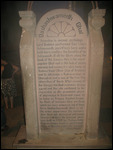
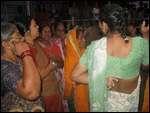
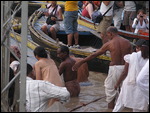
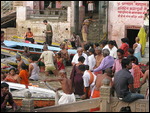
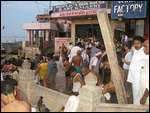
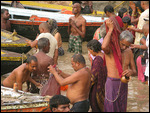
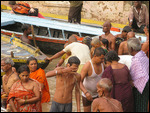
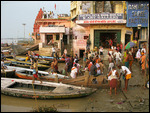
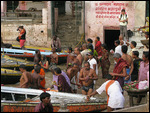
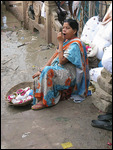
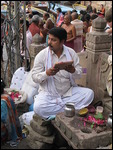
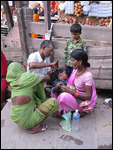

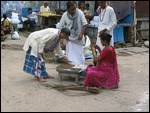
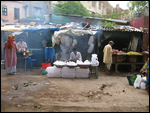
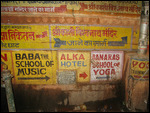
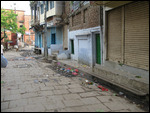
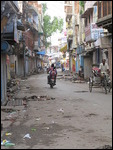


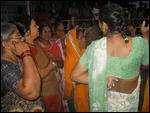
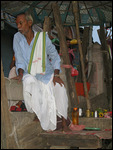
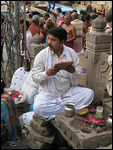
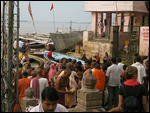
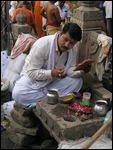
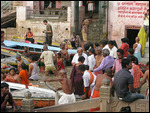
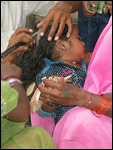
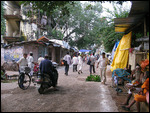
2025-05-23